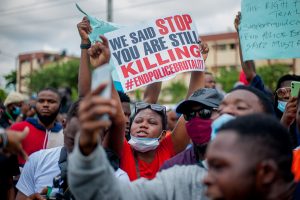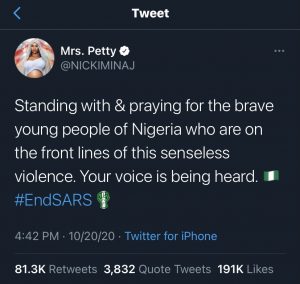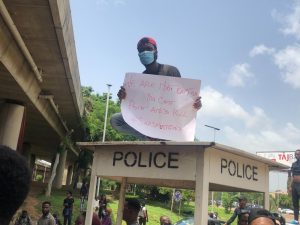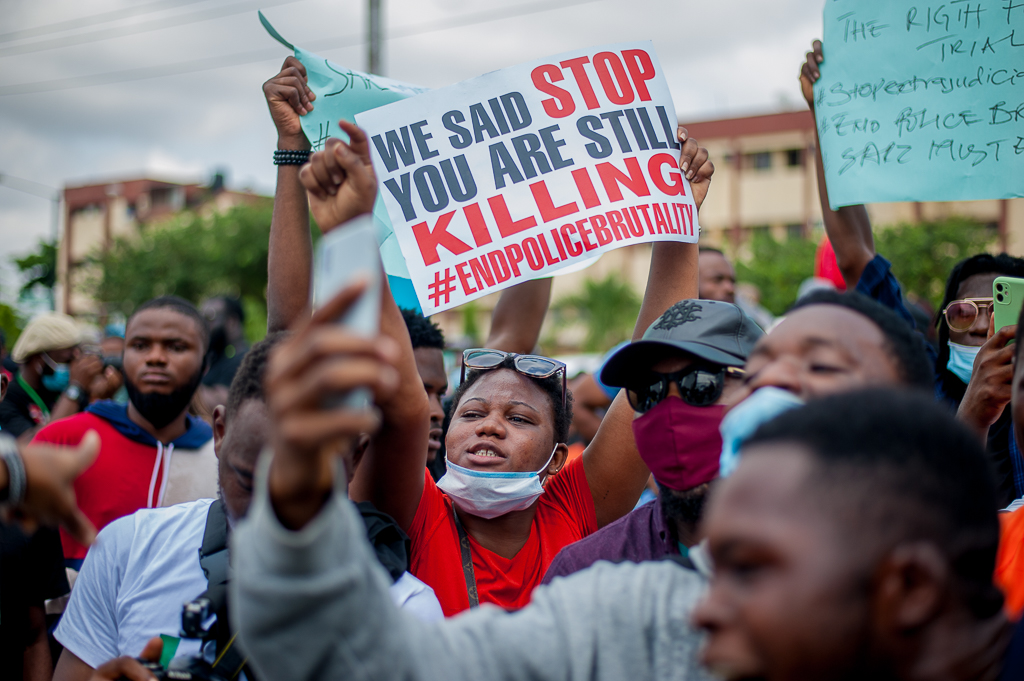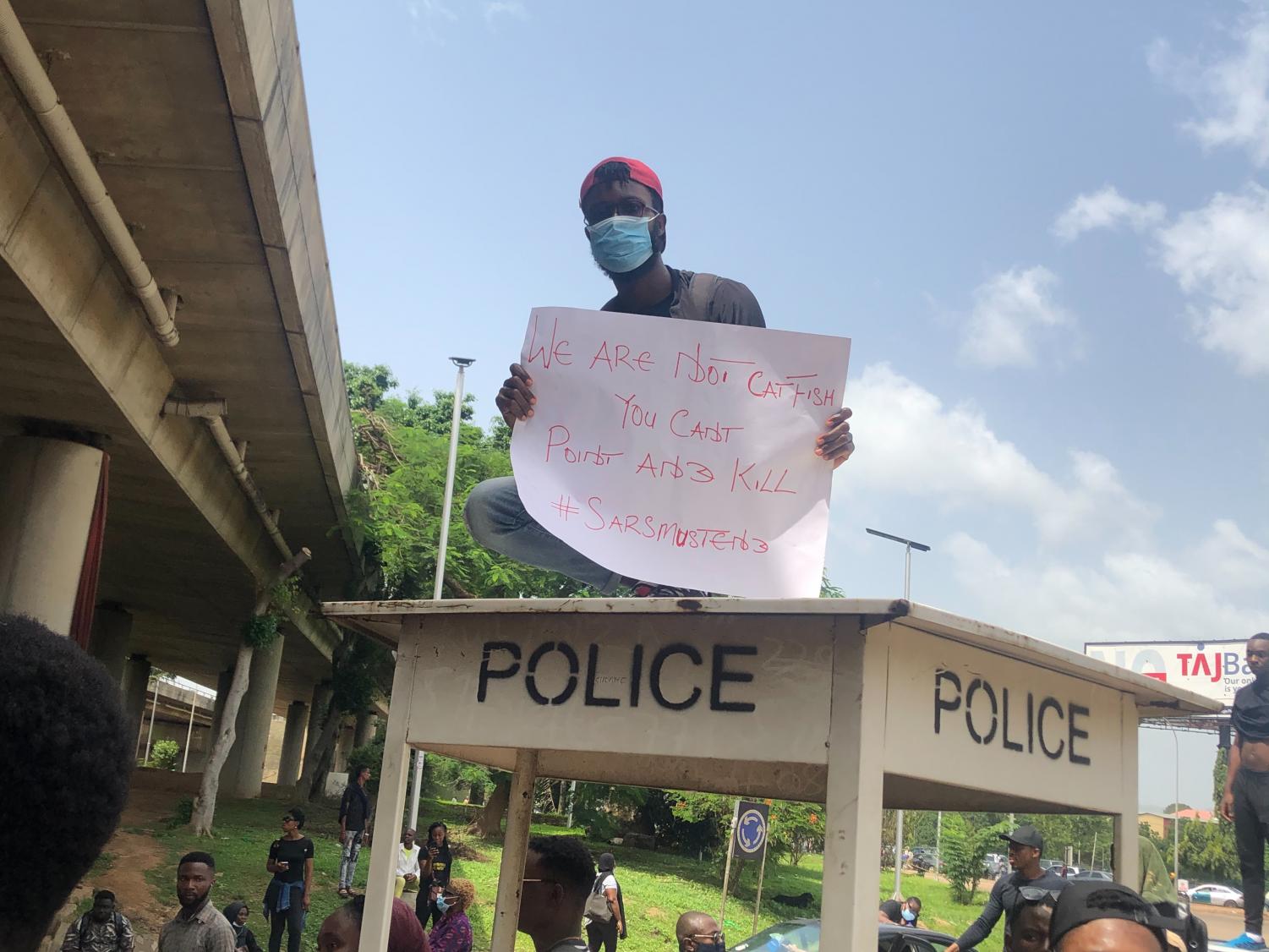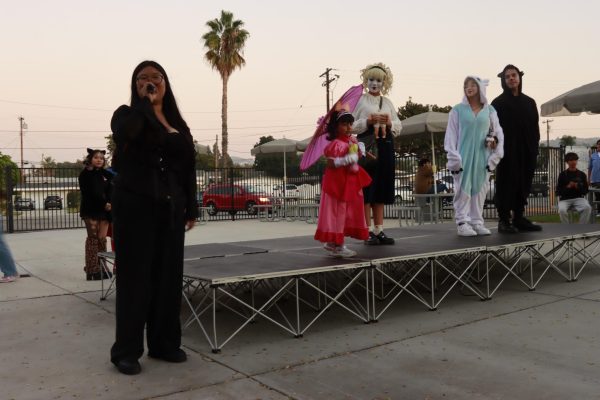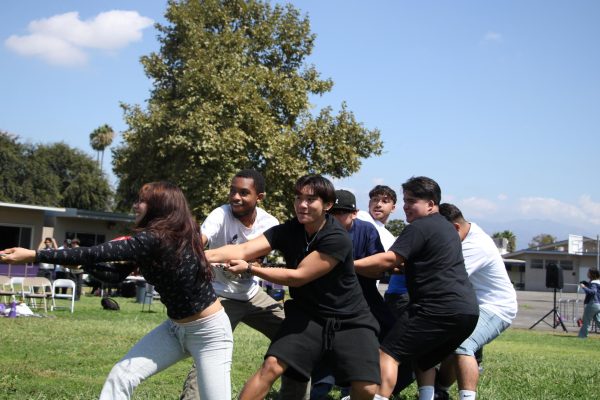#EndSARS: A Movement to End Police Brutality in Nigeria
Amidst the national outrage of police brutality in the U.S., #EndSARS, a social movement originating in Nigeria, has recently been gaining international attention, exposing the brutality of a police organization known as the Special Anti-Robbery Squad (SARS).
Amira Labesh, a junior at Mt. SAC ECA, first heard about #EndSARS through conversations with her friends. “After hearing about it, I googled it and learned a lot about it,” Amira stated.
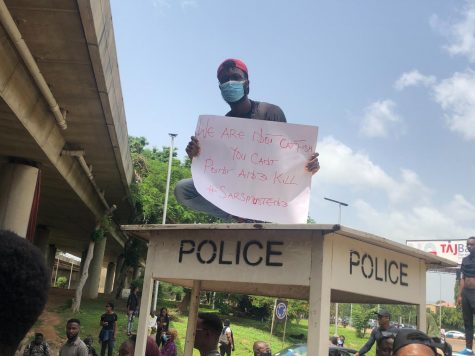
The Special Anti-Robbery Squad in Nigeria has sparked unrest within the country. Protests and violence swarm Lagos, a popular city in Nigeria, to dismantle SARS, an agency with a history of unjustness. This has caused the hashtag #EndSARS to go viral, not only inspiriting advocates with the goal of ending the SARS organization, but enacting social reform that would improve the lives of all Nigerians.
In 1984, the Nigerian government created SARS to combat the rising crime in Nigeria; throughout SARS’s secretive history, they have been accused of extrajudicial deeds and violent actions.
Against a backdrop of brutality and violence, the SARS organization remained for 36 years, with only false promises of reform and change by Nigerian officials. Then, in early October of 2020, a video surfaced revealing a young man shot and killed by a SARS officer; protests and intentions to disband this police unit erupted after this video spread across the internet and social media.
With many wondering if these protests would cause real change, looking back in history could help find the answer.
Ms. Wilcox, a history teacher at Mt. SAC ECA, stated that “[protests] are excellent tools to bring light to injustice, demonstrate the support for change, and show… the will of the people. However, it is a combination of legislation of the government and the voice of the people that causes change. Without action by the legislature, though, protests cannot be successful.”
So, along with protests and demands, governmental compliance is a necessity for real, systemic change.
On October 11, after days of protests, violence, and uncertainty, the Nigerian government officially disbanded the SARS organization. Although many thought this to be the end of conflict and riots, the chaos continued to ensue. The source of this anger is a result of the new Special Weapons and Tactics (SWAT) organization, a replacement police squad for the now-disbanded SARS.
The history of the Nigerian government’s promises of betterment has been less than productive. According to the Oprah Magazine, “The government disbanded SARS in 2017, in 2018 and in 2019,’ a Nigerian graduate student told the New York Times. ‘We’re not buying it this time.’” That is why many are still protesting even after the disbandment; Nigerians want real change and reform.

Anisa Oza is a junior at Mt. SAC ECA. Though she has recently learned about #EndSARS, she believes “that advocating for the #EndSARS movement is extremely important, and should be known across the world.”
In order to spread awareness about the tragic violence in Nigeria, many have expressed their dedication towards the #EndSARS movement; Burna Boy, Rihanna, and Nicki Minaj are only a few popular stars who have shared their voice on this violent crisis. It is important to not only spread awareness, but educate oneself and others on issues around the world. Here is the link to Amnesty International’s report on the SARS organization to learn more about the brutality and conflict in Nigeria.
Your donation will support the student journalists of Mt. SAC Early College Academy. Your contribution will allow us to purchase equipment and cover our annual website hosting costs.
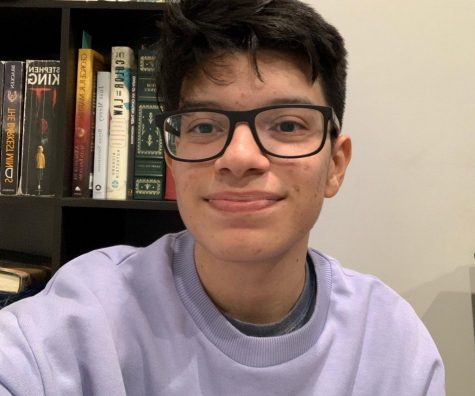
Jordan Alvarado is in his senior year and this is his 2nd year on the Academy Chronicle staff. They are the secretary of the UNICEF club and are a part...


